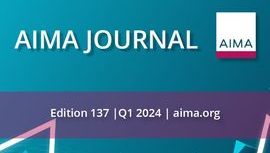Five things we learned from the ACC US Summit
Published: 23 November 2018
The inaugural Alternative Credit Council (ACC) Summit in New York held earlier this month (6 November 2018) brought together over 200 delegates to celebrate the continued growth of private credit and reflect on the trends that will shape the future of the private credit industry over the coming years. Below are a number of the key themes from the day’s discussion.
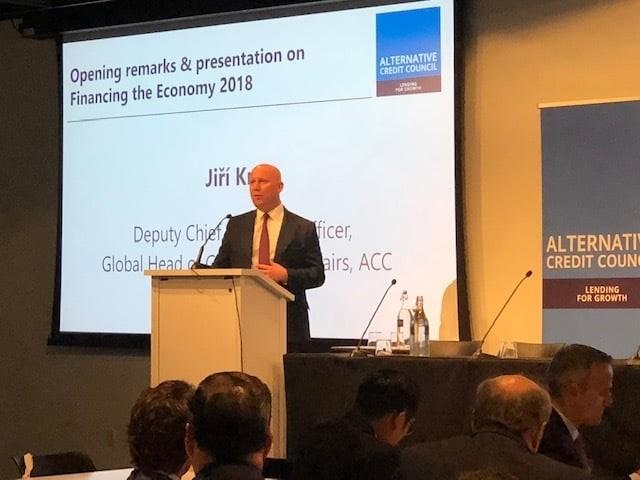
Jiří Król, Deputy CEO and Global Head of Government Affairs at AIMA, delivers opening remarks and introduces Financing the Economy 2018
More than just direct lending
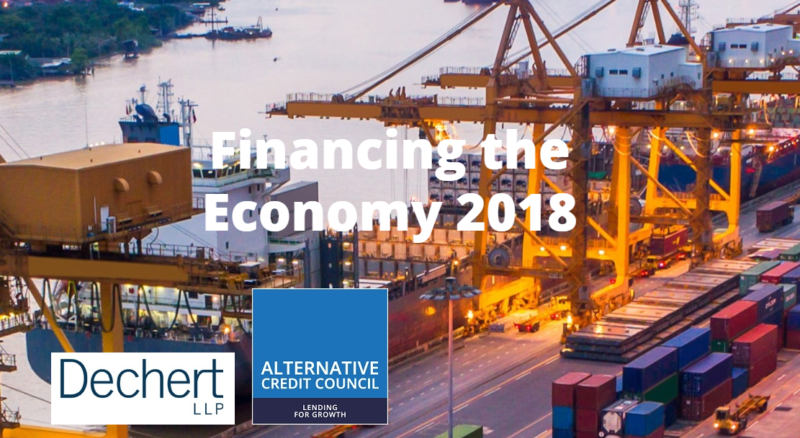
Financing the Economy 2018
When in Rome
Local legal, regulatory and cultural considerations all play an important role in determining how private credit markets operate. In growing markets, such as those in Europe or Asia Pacific (APAC), these structures are still taking shape and several speakers highlighted the opportunity for private credit managers to shape the debate. Delegates were optimistic that borrowers’ and policymakers’ increasing familiarity with private credit would lead to greater political support for the asset class in these regions. This optimism was qualified - reform can be a double-edged sword depending on the motivations of policymakers – and delegates were also mindful of how political risk is often more important than economic risk in some markets.
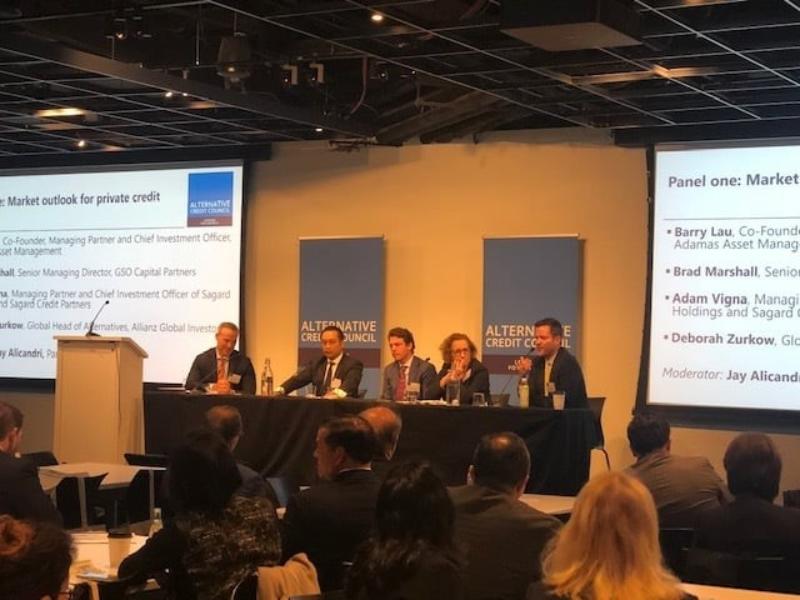
From left to right: Jay Alicandri (Dechert LLP), Barry Lau (Adamas Asset Management), Brad Marshall (GSO Capital Partners), Deborah Zurkow (Allianz Global Investors), Adam Vigna (Sagard Holdings and Sagard Credit Partners)
When liquidity meets reality
There was a lively discussion about how investor liquidity considerations are driving some parts of the market. Most capital in private credit is invested using closed ended fund structures. But delegates indicated that liquidity was increasingly important to investors in private credit and that these structures should take this into account. Although this opinion was not unanimous, several managers suggested that a disconnect exists between the type of liquidity some investors want and what is appropriate given the nature of the asset class. There was a strong sense that open-ended structures should be avoided and that managers should continue to hold the line to ensure consistency between liquidity in the fund and the underlying asset.
Time to buckle up?
It’s a given that no private credit conference can take place without a discussion of where we are in the credit cycle and the sector’s resilience in the face of a potential downturn. Although this is now a familiar debate, it was encouraging to hear how managers remain aware of the potential risks that lie ahead. Many speakers and delegates discussed measures to address those risks throughout the day. Measures discussed included investors adopting higher positions in the capital structure, robust internal monitoring and risk management systems, increased work-out capacity and rotation away from markets with higher risk profiles. There was no consensus on the much harder question of when conditions in the private market are likely to come under pressure or what might spark such a change. There is agreement across the market that preparations for a market correction need to be made.
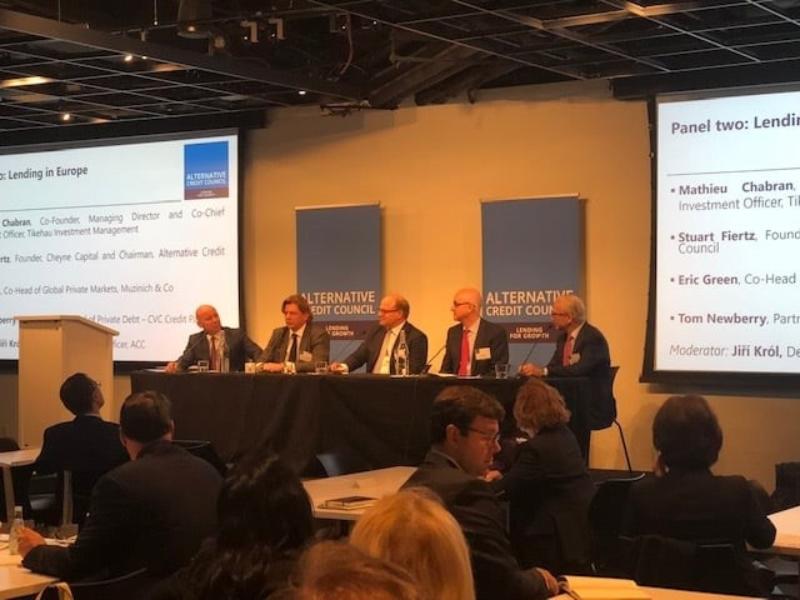
From left to right: Jiří Król (Deputy CEO and Global Head of Government Affairs at AIMA), Mathieu Chabran (Tikehau Capital), Stuart Fiertz (Cheyne Capital), Eric A. Green (Muzinich & Co), Tom Newberry (CVC Credit Partners)
Reputation matters
Private credit has had the good fortune to develop in a relatively benign policy and economic environment. Traditional lenders have been constrained by legacy loans and the impact of new regulation. Policymaker attention has been focussed elsewhere and borrowers have embraced the flexibility offered by alternative finance providers. As the private credit industry enters a more challenging economic environment in the years ahead, there is an awareness that the behaviour and performance of private credit managers during this period will have a significant impact on how the sector is perceived by borrowers, investors and policymakers. During this period, it will be crucial for the sector to maintain good communication with industry stakeholders and preserve its discipline to safeguard a sustainable future for the asset class. This will be an area of focus for the ACC in 2019 and we hope that you will support us in our efforts.
Many thanks to all the speakers, the ACC board, our generous sponsors and to all the delegates who attended this year's ACC Summit. We look forward to announcing some exciting news regarding ACC summits in Canada, Europe and the US in 2019.
The ACC is a global body that represents asset management firms in the private credit and direct lending space. It currently represents over 100 members that manage $350bn of private credit assets and provide an important source of funding to the economy. They provide finance to mid-market corporates, SMEs, commercial and residential real estate developments, infrastructure as well the trade and receivables business.
The ACC’s core objectives are to provide guidance on policy and regulatory matters, support wider advocacy and educational efforts and generate industry research to strengthen the sector's sustainability and wider economic and financial benefits.







